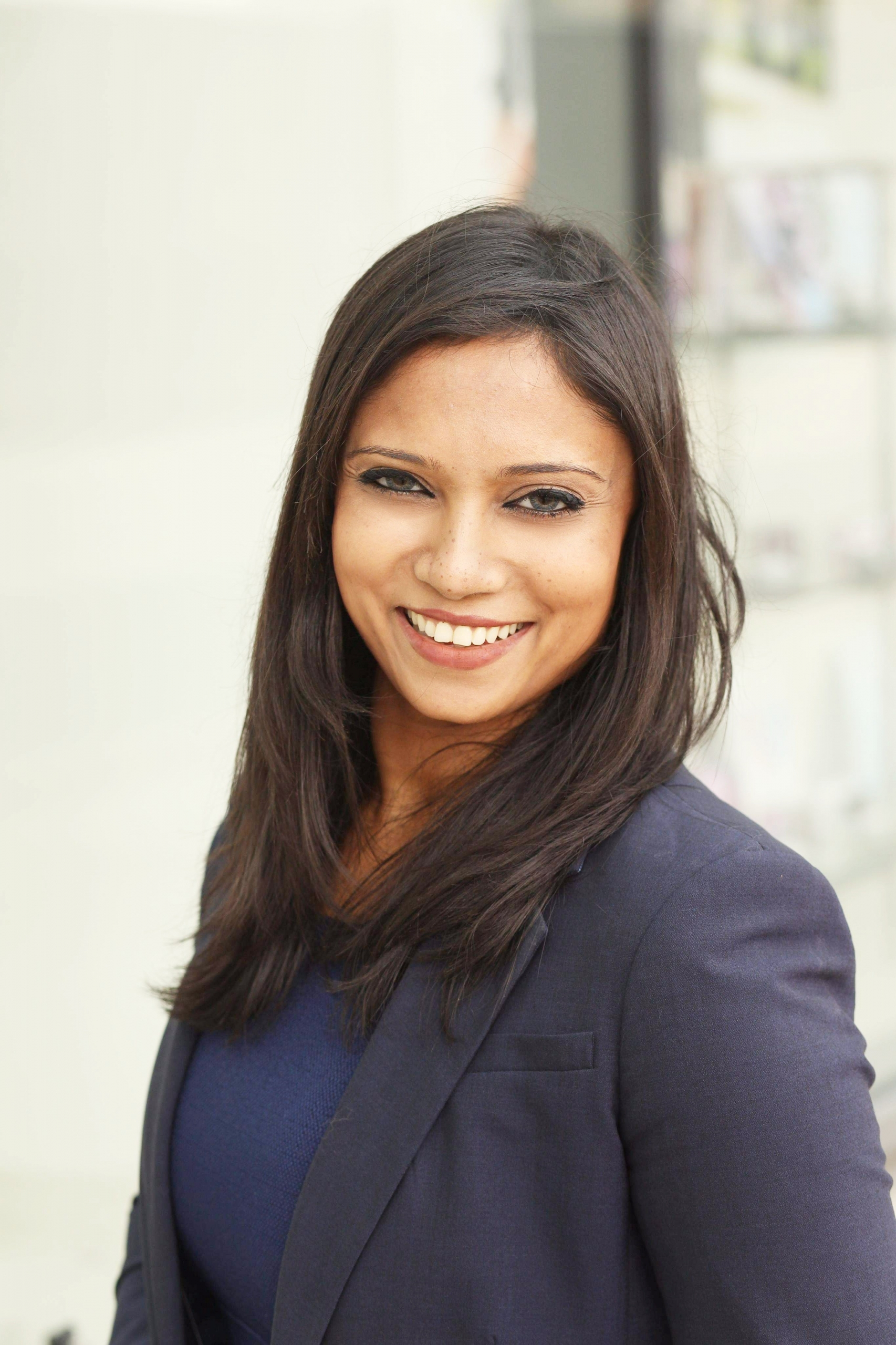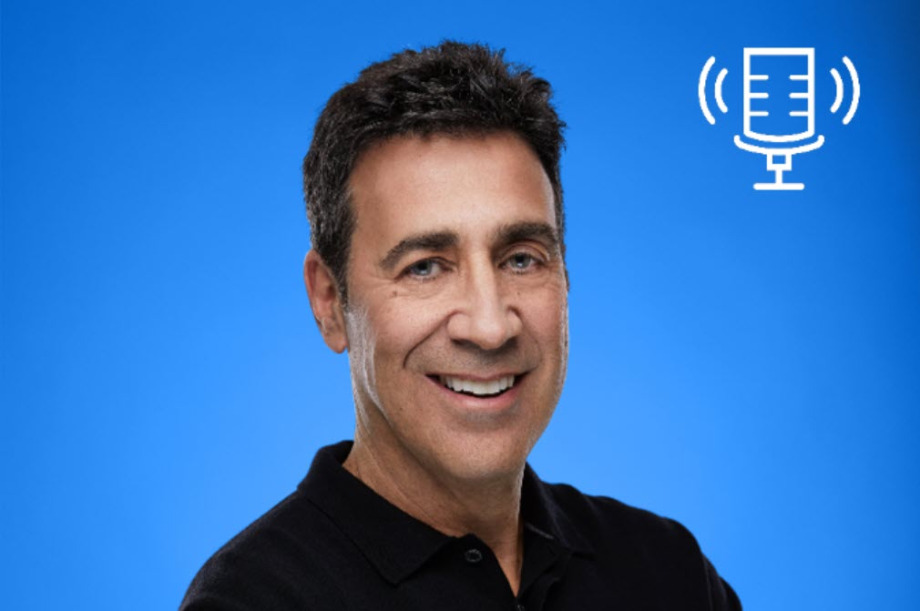Growing up in a traditional South Asian home, Nazia didn’t always have the support of her family or community when it came to her pursuing her career dreams. Her family reinforced the importance of receiving a higher education, but felt marriage and having children as being a true indicator of happiness for a woman. But Nazia knew she could have it all. Today, as a mother, an instructor at the University of Toronto and a leader at RBC, Nazia says her journey is nowhere near finished.
“When I was young, I was asked what I wanted to do when I grew up and my response was ‘I want to change the world.’ In 2020, that’s still the plan.” As a Senior Director for the Regulatory Strategy and Delivery team in Personal & Commercial Banking and an instructor of Digital Transformation and Data Governance in the Masters of Information at the University of Toronto, Nazia chooses to take on roles to help build, grow and develop new digital capabilities in an ever-changing world.
We sat down with Nazia as she talked about her career highlights, influences and hopes for the future.
 What is one of the biggest challenges you’ve overcome?
What is one of the biggest challenges you’ve overcome?
The biggest challenge I’ve had to overcome was the cultural expectations of a woman. Being from a traditional South Asian family, there was a set definition for what success meant for a woman – to get married, have children and focus on the family. My family has always supported women getting their education, my mom and aunts all have their Masters, but higher education was merely seen as a way to further support your husband in his career or being able to keep up with him in conversation. But once you mention having a thriving career, the belief was that you would abandon your husband and family in order to succeed in the workforce, and unfortunately, that is the cultural norm for a lot of people. I knew from an early age I wanted to have a successful career – one where I could make an impact. Growing up in North America allowed me to follow my dreams, but it never came with the full support of the whole family and friends. There was always a sense of disappointment whenever I would choose to share anything related to my career or education, instead of a desire to get married or start a family.
Once I did become a mother, there were even more emotional barriers placed in front of me – questions about whether I could work and be a good mother, whether I should take on more responsibility at work, etc. As a parent, you are constantly trying to find balance—our societal infrastructure still has barriers for supporting a house with two working parents. The standard 9-5 working hours conflicts with school hours and requires parents to constantly negotiate priorities. I am fortunate to work for a company that embraces flexibility, but I wonder about parents who don’t. Studies have shown that ultimately these responsibilities often fall on women’s shoulders and you see many women taking a step back after having children.
Can you share a career highlight?
This year I had the opportunity to leverage my experience at RBC in digital transformation and data governance and teach two Master’s level courses for the Faculty of Information at University of Toronto. It was a career highlight because it helped me break into Academia, which is something I have not done before. Teaching has been something I have always wanted to do, and being able to do it at one of Canada’s best universities has been a dream come true. It allowed me to have a change from day job and develop another side of myself. Being able to teach more than 50 future leaders each semester has been an incredible experience. I’ve learned so much about how they think and solve problems. It became an experience where I was teaching and learning at the same time. My course on data governance was picked up again for 2021 and I am looking forward to continuing on the teaching path while working at RBC. I believe that what technology can provide us as a society is still in its infancy. If we just look at what is possible within RBC for example, we have only scratched the surface.
Can you tell us about a mentor who had a significant impact on your life?
My grandmother, who was a very progressive thinker, had a huge impact on me when I was a child. She got married in her teens, but she still went back to school to get her degree even after having seven children. She instilled confidence in me and supported my decision to pursue a fulfilling career by reiterating the message that your best friends in this world will be learning and education. She reminded me that I needed to work very hard in my 20s and 30s in order to set that foundation for life, because I wasn’t going to get much support for how I wanted to live my life. My grandmother passed away when I was 17 and after that, I didn’t have a mentor for a long time until I joined RBC.
I’ve been so fortunate to be mentored by so many strong women at RBC. RBC has many strong female role models within its businesses who lead strategic groups and create an inclusive culture for women. My current manager, Alaina Aston, VP Regulatory Strategy & Delivery was instrumental during COVID when we all had to shift into the “new way of working.” She led our team with empathy and found innovative ways for us to work and collaborate during these challenging times. When you are isolated from the world and working a lot, these things make all the difference in creating a great place to work.
What advice would you tell your younger self or reinforce to your daughter?
I actually think there are a few pieces of advice which I would give my daughter, and wish I could tell my younger self. First, the world isn’t black and white. When we’re younger, we tend to categorize things as right and wrong. And once you get older, you start to see that it’s a lot more blurred and nuanced and perspective is everything. Understanding the nuances and different perspectives makes you a much better person. I’d also remind her to not be so hard on herself when she doesn’t check one of the boxes. This is a particularly important reminder for girls when they’re growing up. Women are predominantly geared towards certain career fields, because society has traditionally told women they should be in these roles. When I was on a call with the other WXN award winners, there was an associate professor, an insurance executive, a technology executive, a leader from the military, and they all had different titles. When I was younger, no one ever told me that there were so many career paths. I am raising Aleesa in a way where I don’t want her to think she’s going to be boxed into something and the world is black and white. I want her to know that she can be anything she wants.
What advice would you give to someone who is seeking a mentor?
The best way to find a mentor is to determine what type of leader you want to be, since there are different styles of leadership. You want to find someone you admire and will give you the advice and guidance that suits you and your needs and really shows that they are invested in you. The second piece of advice I would give is have more than one mentor. We are all unique individuals with our own distinctive journeys. Find mentors who speak to your different sides, and find your own voice from that composition.
Since we’re not having social gatherings or in-person events at the moment, you don’t get the full opportunity to get a feel for someone as mentor or mentee or see if there’s chemistry and if you click. So my suggestion would be attend virtual events and listen to the panelists and find out what’s important to them. Look for synergies in your beliefs and then reach out for a digital coffee.
This article is intended as general information only and is not to be relied upon as constituting legal, financial or other professional advice. A professional advisor should be consulted regarding your specific situation. Information presented is believed to be factual and up-to-date but we do not guarantee its accuracy and it should not be regarded as a complete analysis of the subjects discussed. All expressions of opinion reflect the judgment of the authors as of the date of publication and are subject to change. No endorsement of any third parties or their advice, opinions, information, products or services is expressly given or implied by Royal Bank of Canada or any of its affiliates.



















